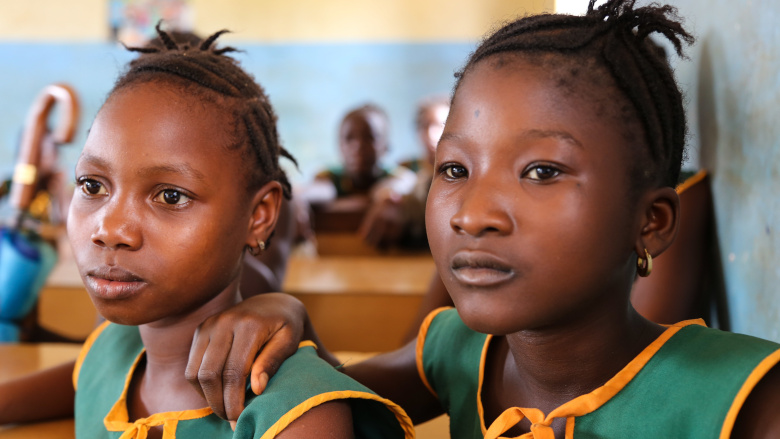FREETOWN, July 30, 2020 – To better manage spending, the authorities should continue to deepen and sustain fiscal consolidation reforms which are critical for macroeconomic stability, according to a new World Bank economic analysis for Sierra Leone.
The Sierra Leone Economic Update, The Power of Investing in Girls, notes that overall government revenue in 2020 will go down by 1 percentage point of gross domestic product (GDP) to 16.7% of GDP due to the COVID-19 (coronavirus) pandemic. As for spending, the cost of supporting health system surveillance, isolation, and treatment of those affected by the disease will jump, widening the fiscal deficit by 2.4 percentage point to a projected 5.3% of GDP. If the local COVID-19 outbreak is prolonged, the deficit could rise to 8.6% of GDP.
“To rationalize spending, it will be important to emphasize curtailing wasteful recurrent and extra-budgetary spending and making capital spending more efficient by ensuring that it is on essential infrastructure,” said Youssouf Kiendrebeogo, World Bank Senior Economist and one of the authors of the report. “With Sierra Leone’s commitment to resume fiscal consolidation efforts post-COVID-19, including clearance of the large stock of arrears, the risk of debt distress could abate from ‘high’ to ‘moderate’ as deficit reduction efforts gain momentum in 2021–22.”
The report indicates that pre-COVID fiscal deficit was projected to decline to 3.6% of GDP predicated on effective fiscal consolidation. The resumption of fiscal consolidation is expected to narrow the fiscal deficit to 3.9% of GDP by 2022, based on vigorous revenue mobilization and better management of expenditures, including new Public Financial Management regulations.
As long as the pandemic makes macroeconomic conditions difficult, easing monetary policy and exercising regulatory forbearance are essential. The Bank of Sierra Leone launched its monetary stimulus program in March 2020, when the Monetary Policy Committee lowered the Monetary Policy Rate by 150 basis points to 15%. However, high and rising headline inflation is narrowing the scope for further monetary stimulus.
“Lower interest rates could stimulate private sector activity and help to ease the burden on businesses whose supply chains have been disrupted. It may also be appropriate to provide more liquidity support to banks likely to be affected by deteriorating credit quality or facing both funding pressure and urgent demand for short-term credit from small medium enterprises and other firms,” said Gayle Martin, World Bank Country Manager for Sierra Leone.
While prudent policy measures are being undertaken to ensure a sustainable turnaround of the economy, the report also recognizes the major role the government has in developing the country’s financial sector, and provides recommendations in several areas. Key reform priorities include:
Maintaining macroeconomic stability by providing targeted, strategic support to the productive sectors of the economy through realistic instruments as fiscal space allows.
Implementing medium-term policy measures to give priority to structural reforms to accelerate inclusive economic growth, fiscal consolidation and prudent monetary policy to ensure economic stability.
Using social assistance program to protect poor and vulnerable households as this is central to income support during the crisis.
Review and reorganize the development budget to reduce budgeted needs as long as the fiscal position will be under heavy pressure due to the pandemic. This would allow the authorities to focus more strategically on high-impact projects, where bottlenecks could be addressed and committed funds from development partners unlocked.
Prioritizing arrears clearance to ease the burden on the budget. To clear the large stock of domestic arrears—the biggest burden on budget implementation—government needs a medium-term arrears clearance plan that has an explicit resource envelope, a procedure for prioritizing claims, and mechanisms for repaying or rescheduling claims.
In addition to investing in the health systems, the report identifies the need to prioritize investments in girls. With schools currently closed due to COVID-19, the study recommends as immediate priorities support to students and families to cope with the crisis and ensure that learning continues while they stay at home, reopening schools safely and with adequate support for students, and strengthening education systems and increasing their resilience to future crises.

